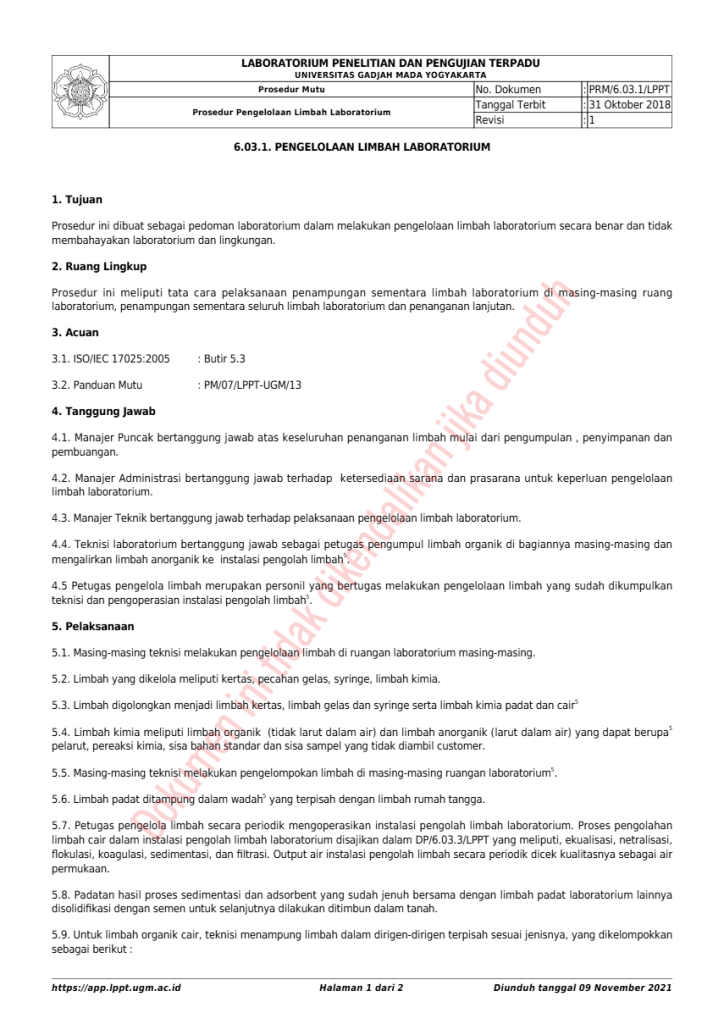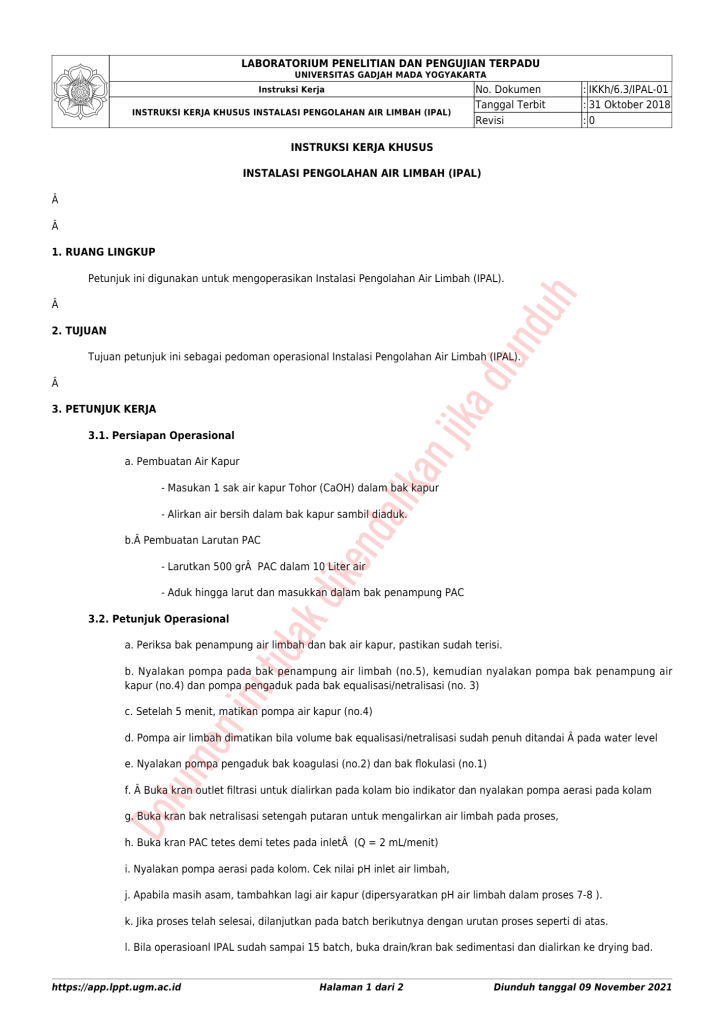Universitas Gadjah Mada (UGM) has established comprehensive policies and procedures for the disposal of hazardous materials, demonstrating its commitment to environmental sustainability and safety. An SOP outlines waste management within the university environment, including specific guidelines for handling hazardous materials. It provides detailed procedures to ensure safe and compliant disposal practices (Waste Management in UGM).
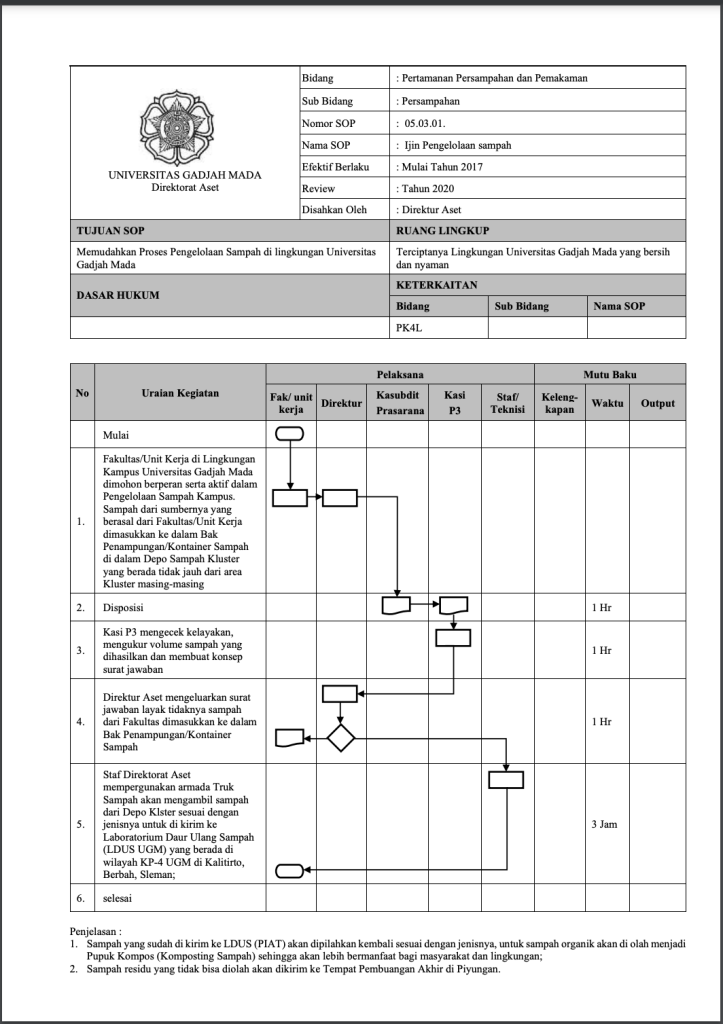
The UGM Strategic Plan includes provisions for fostering a campus atmosphere that supports sustainable behavior (p.13 and p.14) and in its Strategic Goals (p.26 and p.27). UGM is committed to advocating for harmony and balance between humans and nature for the sake of future sustainability
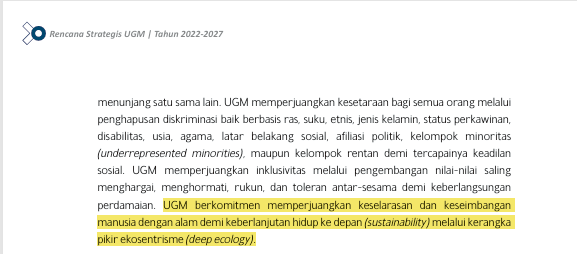
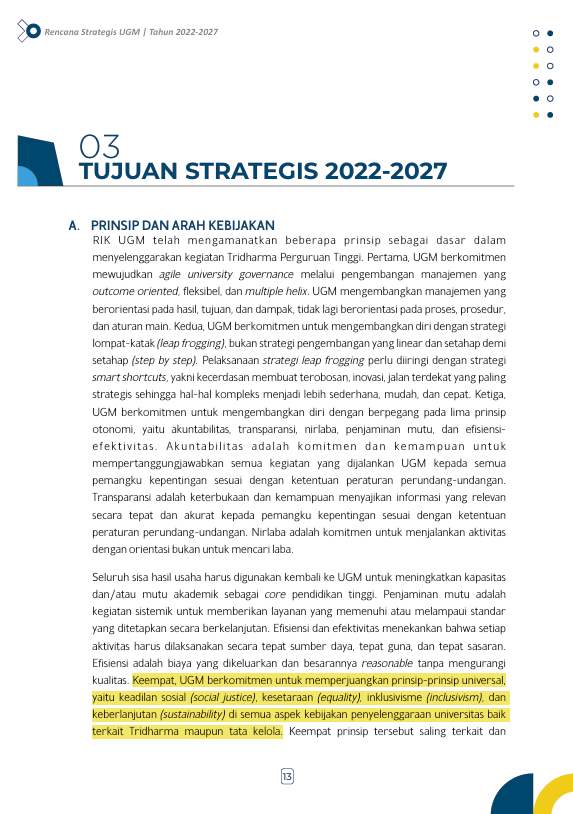
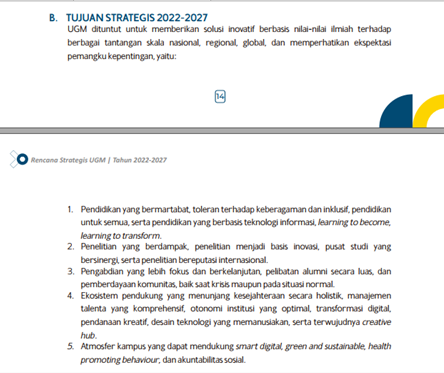
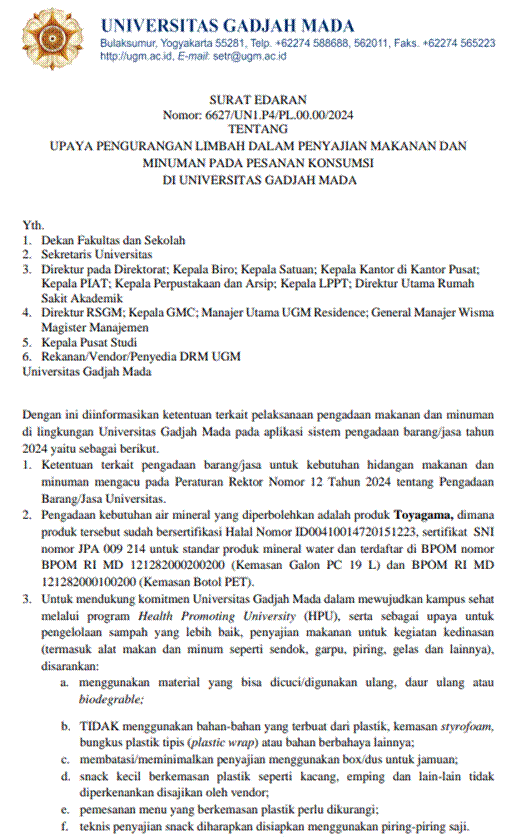

The Circular Letter (SE) issued by the Vice Rector of Universitas Gadjah Mada (UGM) (Circular Letter 6627/UN1.P4/PL.00.00/2024) on Waste Management within the UGM campus is a policy aimed at reducing packaging waste in the presentation of food and beverages on campus. The Vice-Rector for Human Resources and Finance signed the Circular Letter in June 2024. (pslh.ugm.ac.id)
This policy supports UGM’s commitment to creating a healthy campus through the Health Promoting University (HPU) program (https://hpu.ugm.ac.id/) and aims to improve waste management practices. Key points in the circular include:
- Use of Eco-Friendly Materials: Encourages the use of washable, reusable, recyclable, or biodegradable materials in food and beverage presentations.
- Reduction of Plastic Usage: Prohibits the use of plastic materials, styrofoam packaging, thin plastic wraps, or other hazardous materials.
- Limitation on Boxes/Cartons: Limits or minimises the use of boxes/cartons for serving meals.
- Snack Packaging: Prohibits vendors from serving small snacks in plastic packaging, such as peanuts, crackers, and similar items.
- Serving Techniques: Recommends serving snacks on plates or serving trays.
The Campus Security Office website (https://k5l.ugm.ac.id/) provides a procedure for managing hazardous waste (Limbah B3) at Universitas Gadjah Mada (UGM). The procedure ensures the safe and compliant handling, storage, and disposal of hazardous materials within the university. The content highlights the importance of following established protocols to minimise environmental impacts and protect the health and safety of the campus community. (Flow Chart of Management of Toxic Hazardous Waste (B3))
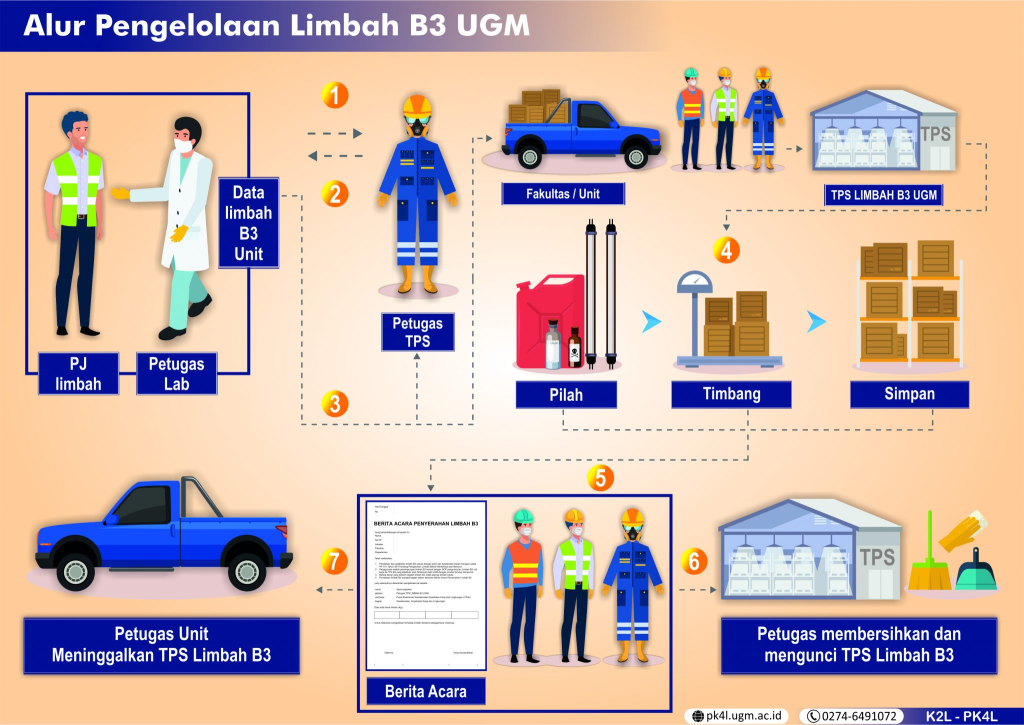
The Academic Hospital of Universitas Gadjah Mada (RSA UGM) has aligned its hazardous waste management practices with the provisions in Minister of Environment and Forestry Regulation Number P.56/Menlhk-Setjen/2015. It regulates the technical procedures and requirements for managing hazardous and toxic waste (B3) from healthcare facilities. Article 38 of this regulation emphasises the importance of training for personnel involved in hazardous waste management (Waste management in UGM’s Academic Hospital RSA)
- Personnel Training: RSA UGM regularly provides training for staff involved in hazardous waste management, ensuring they have the knowledge and skills required to handle hazardous waste safely and efficiently.
- Certification: Personnel who have completed training must obtain certification per standards set by the Ministry of Environment and Forestry, ensuring their competence in hazardous waste management.
- Knowledge Updates: RSA UGM ensures that staff are kept up-to-date with the latest regulations and technologies related to hazardous waste management through advanced training programs and workshops.
UGM owns a research facility that provides comprehensive support for scientific research, testing, and analysis. It is Laboratorium Penelitian dan Pengujian Terpadu (LPPT), or the Integrated Research and Testing Laboratory. Their website provides the laboratory’s waste management procedures SOP Laboratory Waste Management from LPPT UGM. It emphasises the importance of proper handling, segregation, and disposal of various types of waste generated during laboratory activities to ensure safety and environmental compliance. The document provides detailed guidelines on the classification of waste, storage protocols, and disposal methods, aiming to minimise environmental impact and adhere to regulatory standards.
